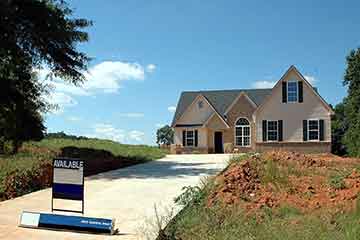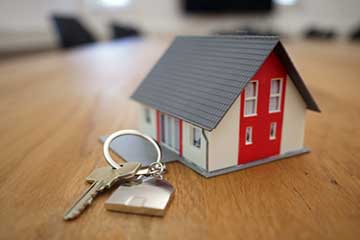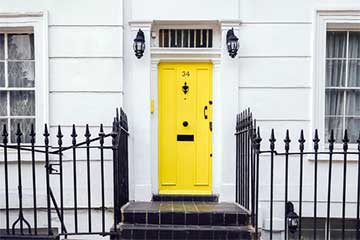Leasehold vs Freehold Properties. What is the difference?
Probably, you heard about the term of freehold and/or leasehold, but deciding which which one is the best option for your situation can be quite confusing, especially that everyone has an opinion on freehold vs leasehold properties.
So, wondering what is the difference between leasehold and freehold properties? Both are ways of owning a property, but it is vital to understand what are the differences and how can affect your ability to buy, own or sell your home.
Buying a freehold property means that you will be the complete owner of the building and the land is built on, having a “free holding”. You are responsible and in charge of how, when and what is needed to be maintained within the property.
Main advantages of buying a freehold property are:
- you have complete control over property
- you do not have to worry about further payments, such as ground rents, service charges or admin fees
- are no constraints in term of what you can do within your house: renovation, alterations, purpose of use: having pets, etc (of course, keep in mind some alterations are included within permitted development laws others require planning permission)
- you do not have to worry about the lease running out, as you own the property outright.
This article will cover:
Are some cases, when you “get a share of freehold”; this is the case, most likely when comes to flats and offers the advantage of buying permanently. What this means? If you are owning a piece of freehold, you get the right to have some influence on the upkeep of the building and land, but it will still be required to arrange with other neighbors when it comes on arranging repairs and paying for it.
In some cases, you will see a property listed as Freehold Reversion. This means that the leasehold on the property is running out and it will soon become a freehold.
If you aim to buy such a property, we highly recommend checking in detail the contract as many of this contracts are very individual and have a lot of variations and probably you will need to seek help of a professional – look for a legal company that is member of Association of Leasehold Enfranchisement Practitioners.
Need A Free Estimate?
- Fully qualified RICS professional surveyor
- Affordable, fast and thorough surveys
- Clear, precise and easy to understand report
Compared to a freehold property, when you buy a leasehold you will own the property for the length of your lease agreement with the freeholder. When the agreement ends, the ownership returns to the freeholder.
Usually, a leasehold applies to flats, apartments and maisonettes as you own your purchase (for example, a flat) but not the building itself.
When comes to buying a leasehold property, you should consider the following aspects:
- length of lease – if you are considering buying a leasehold property, when you should check what it the length of the remaining term of lease. Typically, a leasehold should have at least 80 years remaining as you might struggle to get a mortgage.
- your options to extend the lease – usually, a qualifying tenant has the right to extend their lease by 90 years if they owned the property for two years. To be a qualifying tenant, the original lease has more than 21 years. To note, that you might need to hire a solicitor and a surveyor, when comes to extend your lease. Also, the freeholder can charge you when you request a lease extension.
- responsibility – similar to renting, one of the advantages of leasehold is that if works is required to be done on the property as a whole, the freeholder is responsible to arrange it. However, you should check the lease terms for your responsibility as in many cases, the freeholder will request a contribution from your side, as it will be responsible only for a portion of it along with other leaseholders.
As mentioned before, one of the main differences between leasehold and freehold, is that when you own a leasehold property, you do not own the land or the property as a whole. This means that the freeholder it will be responsible for the maintenance and repair of the building.
Usually, the freeholder will have a managing agent to take action in his behalf when comes to these issues. In most lease contracts, different fees will be explained and who is responsible for them and is expected from leaseholders to share these costs.
The following charges/fees are typical included in any leasehold agreement:
- service charges, these can include anything from maintaining communal gardens, electricity bills and maintenance costs for communal areas to regular inspections fees. We strongly recommend to become aware of the service charges before you put in an offer as this will definitely affect your affordability.
- ground rent
- administration charges
- building insurance
If you own a leasehold property, the repairs and maintenance of your own property are your responsibility and if you aim for any significant changes, the landlord’s permission will most likely be required.
As a leaseholder, you have some rights in order to prevent the landlord taking advantage of his position. For example, you can ask from him to share a summary of how the service charges have been spent and how they have been calculated along with any receipts for any work carried out.
Also, the freeholder needs to ask for our consent when comes to approving any building work costing more than £250, if the work is lasting for more than a year or if the work carried out costs you more than £100 a year.
I hope you enjoyed our “Leasehold Vs Freehold Properties. What Is The Difference?” guide. Please share it with your friends and family and please help us improve by leaving us a review.
If you have a leasehold property, you may be able to extend your lease. This can be a good idea if you want to increase the value of your property or make it easier to sell.
It’s best to extend sooner rather than later, as the shorter the remaining lease, the more costly it may be to extend.
Usually when you extend a lease, you extend it by 90 years. So for example, if you have 80 years left on your lease, and you extend the lease, the new lease term would be 170 years.
The cost of extending a lease is generally 50 per cent of what is known as the ‘marriage value’ of the property – this is defined as the extra value the property would gain by having a longer lease.
If you have owned your leasehold home for two years or more, you have the right to buy the freehold. This gives you more control over your property and can save you money on service charges and ground rent.
The best way to buy the freehold is to do it formally with the help of a solicitor. The solicitor will be able to negotiate with the freeholder on your behalf and ensure that you get a fair price.
If you cannot come to an agreement with the freeholder, you can take the matter to the First-Tier Tribunal (or the Leasehold Valuation Tribunal in Wales). The Tribunal will then decide on the purchase price and terms.
Buying the freehold is more straightforward if your property is a house, since you are the only owner. If you are in a block of flats, then you will need to get all of the other leaseholders to agree to buy the freehold jointly. This can be trickier to arrange, but in many cases it is worth trying.
Here are some additional tips for buying the freehold:
- Get quotes from several solicitors before making a decision.
- Make sure you understand all of the costs involved in buying the freehold.
- Get everything in writing, including the purchase price, terms, and any conditions.
- If you are in a block of flats, make sure you have the support of the other leaseholders before starting the process.
Buying the freehold can be a complex process, but it can be worth it in the long run. If you are considering buying the freehold on your leasehold home, we recommend speaking to a solicitor or property advisor who can help you understand your rights and responsibilities.
When you buy a property, you have two main options: freehold or leasehold.
Freehold
- You own the property and the land it sits on.
- You are responsible for all maintenance and repairs.
- You can do whatever you want with the property, without permission from anyone.
Leasehold
- You own the property for a set period of time, usually 99 or 125 years.
- The freeholder owns the land the property sits on.
- You are responsible for a share of the maintenance and repairs to the communal areas.
- You may need permission from the freeholder to make changes to the property.
Written by Danil P.
11th Oct 2021 (Last updated on 15th May 2023)
7 minute read





